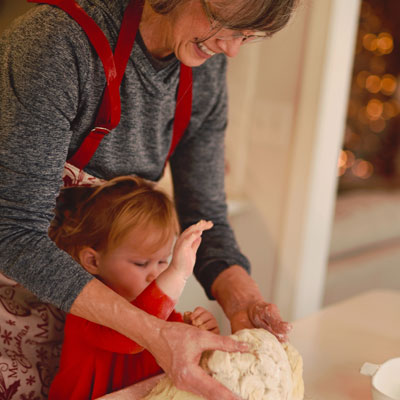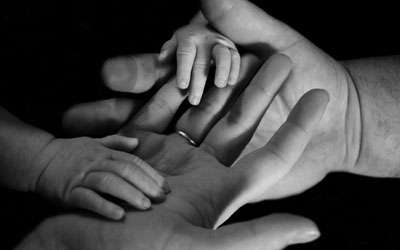Raising a child is no easy task. And when you add more people to the mix, things are bound to become more confusing. Having so many people around constantly might disturb the balance between a child and their parent. What is a parent to do in such a situation? And more importantly, how can you your extended family aide in your child’s development? We hope to answer, these and more questions, in this week’s blog.
You are probably aware of the impact of the impact home environment can have on the child socially and psychologically. There has been a lot of research done on the topic to indicate the importance of the relationship that a child has with their parent, but not much on the role of grandparents and joint families.
It takes a village to raise a child
While a good day care can provide valuable support to young parents, but the personalized attention that a joint family can give to a child is irreplaceable. In joint families, grandparents or other members of extended family take turns in nurturing and raising the child. However, there are bound to be some challenges living with your extended family.
So let’s explore what are the advantages of living in a joint family? How does it benefit the child in the long run?
Grandparents can form a valuable bond in the early years of a child
Doing things together bridges the gap of an intergenerational relationship. Grandparents tend to grow affectionate towards their grandchildren due to unconditional love for them. Not many people are aware but grandparents play an integral part in sharing wisdom and support for their grandchildren. Grandparents are wise. Grandparents are essential. Grandparents are fun. Grandparents are connected. The love and warmth towards the grandchildren are similar to the bond shared between the child and parent. Unfortunately, due to various circumstances, often there is a distance between grandparents and grandchildren. But if nurtured properly, the bond between the two fosters the family’s love and commitment towards each other

Extended family can provide a sense of emotional & financial security
Grandparents provide a stable, safe, loving and fun environment for their grandchildren. The positive impact they have on raising their grandchildren and nurturing the family bond is not much spoken about. Having them around is good for the entire family. They impact the lives of their grandchildren immensely through: wisdom, knowledge and life advice. Having experience in raising children – grandparents reduce the household stress, lend a hand for various situations and provide a deep sense of security. A healthy connection between a grandchild and his or her grandparent is beneficial to both sides of the relationship.
Extended family brings in varied perspectives

Grandparents’ values are typically more cultural and traditional. With the generational gap between them and their grandchildren, there are bound to be differences in perspectives and tastes. Kids hate learning about history but who better to listen to than the ones who experienced it! With the new-gen being hooked onto phones and screens, the love for simple things is slowly declining. Grandparents play a vital role in teaching their grandkids on the essence of playing outdoor games and living life to the fullest.
Having an extended family teaches a child the art of sharing and caring
Child raised amongst extended family members cultivates love and security towards the young one. Studies indicate that children raised in a joint family are more accommodating and adjusting than those brought up in nuclear families. Joint families provide emotional and psychological security to the kids through economic and social cooperation. The habits of sharing and caring through family members and constantly being there for one another nurtures the upbringing child with warmth and gratitude.
Extended families can be emergency lifelines
What if something goes wrong? Who shall be the point of contact when parents are unavailable? These questions are answered with the availability of a joint family. The first line of contact are parents and right after them are the immediate family members. If not parents, the uncles, aunts, cousins and grandparents are available to attend to any sort of emergency.
But living with family brings its own set of challenges. What are these challenges? And how best to deal with them.

Lack of privacy
Lack of Privacy is one of the main reasons which works against the concept of ‘Joint Family’. It could mean so many things – lack of personal space to live, lack of personal space to share, lack of personal space to converse, lack of freedom to express etc. With so many family members around all the time, it is tough for a parent to have their own space to be with their children or share moments between them. In a joint household, a couple always has to be mindful about being watched and heard when they want to exchange a compliment, gesture or engage in a discussion or an argument.
Lack of freedom of expression
We need to keep in mind that living in a joint family means different levels of egos, different tolerance levels and different opinions. Voicing against their beliefs could trigger emotional hurt within the family. The words which are spoken need to be filtered internally before because; the aim is to voice opinions and not hurt sentiments of the family members. That’s why it’s said that ‘Eat your words before you speak them’
Lack of primary communication between parent and child
There is a disconnect between whom should the kids listen to. Joint families bring in different modes of care, love and at times, children connect more towards other family members compared to the nuclear parents. A situation like this creates disharmony within the family which is harmful for the child’s upbringing. Everything have its pros and cons, but what matters is the right type of surrounding for a nurturing kid and family.
So how do we tackle the challenges and make them work in our favour?
Respect elders
Give respect to get respect – that’s how it is! It is tough to raise a child in such an atmosphere because there are so many different people and relations to consider but the key is to be open-minded about this. Don’t expect massive changes from the first day itself, take some time. Soak in the atmosphere, be cordial and with every passing day, allows things to fall into place.
Make time for yourselves
Living in a joint family takes away the luxury of personal space and time. During such moments, strike a balance between being with the extended family and being by yourself with your family. If needed, call it a day early so that you can make time to do what you want.
Lend help whenever needed
Helping people out is universally a good deed. Genuinely being there for your extended family members develops a close bond and makes you understand every member individually. Moments like these lifts the entire mood and makes the surroundings practical and positive.
Living amongst a joint family has its set of limitations but with a little bit of adjusting and understanding, it could bring in abundance and joy in a child’s life.

